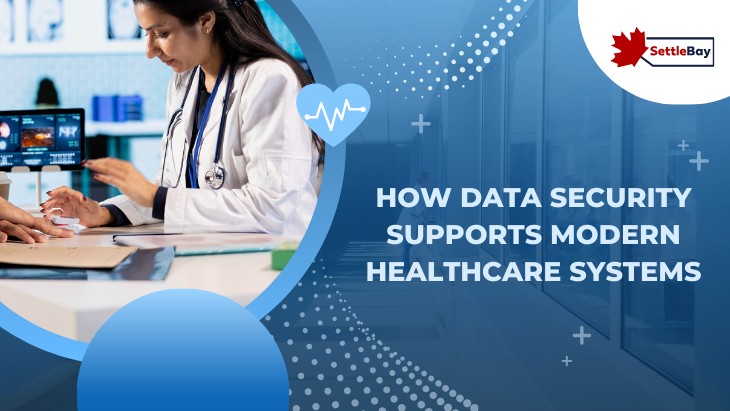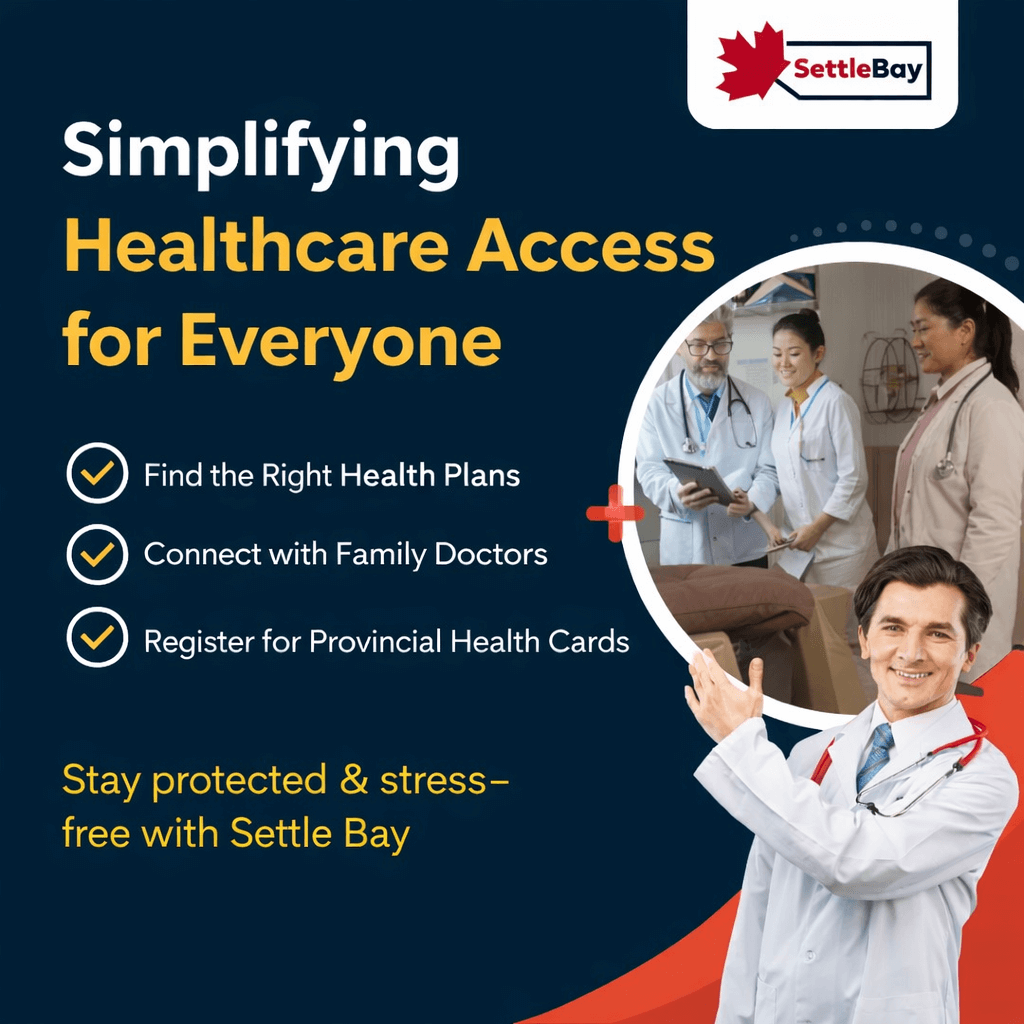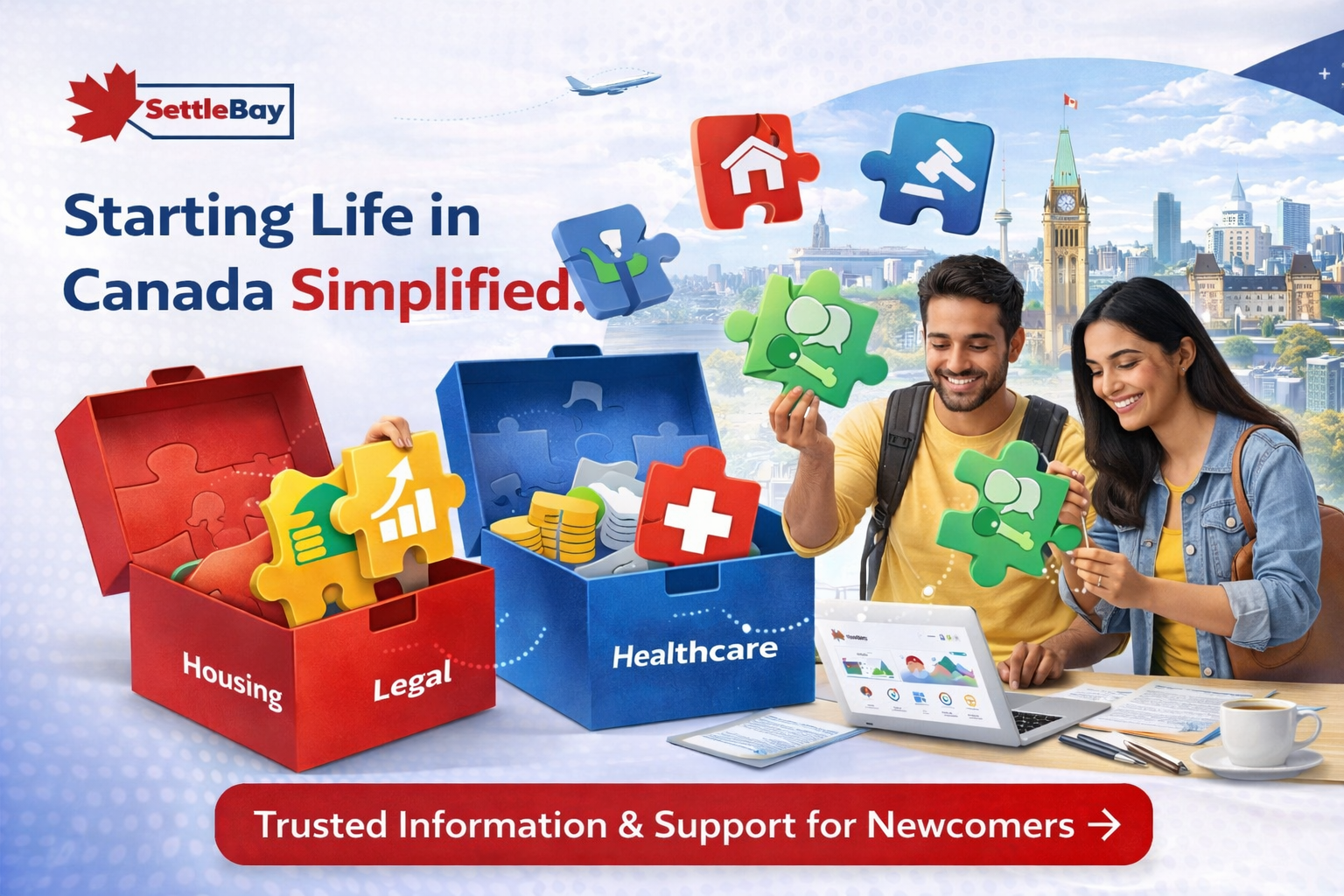Healthcare organizations throughout the world experience fast digital transformations during the present digital age. Healthcare facilities now store and distribute patient information through digital systems, which include medical test results and insurance records and treatment history data. The digital transformation of healthcare operations has brought about enhanced operational efficiency and broader accessibility and new innovative solutions. The implementation of digital healthcare systems requires organizations to establish robust security protocols to protect sensitive patient information.Healthcare information contains more than digital files and numbers because it holds essential personal and financial and medical data, which needs robust protection systems. Enabling New Immigrants Settle in Canada with Modern healthcare information systems depend on data security to protect patient trust and regulatory compliance while delivering superior medical services.
The Importance of Healthcare Data
Healthcare organizations handle the most confidential information, which includes patient data. The information managed by healthcare organizations includes personal details along with medical records and prescriptions and test results and payment information and insurance documents. The unauthorized disclosure of healthcare data leads to multiple severe outcomes that include identity theft and financial damage and endangerment of patient safety. Medical errors and unauthorized use of personal health information become possible when unauthorized parties gain access to patient medical records.
Healthcare organizations need to maintain patient trust and safety while following HIPAA regulations in the United States and GDPR in Europe and all applicable healthcare laws from their respective countries. Organizations that fail to meet regulatory requirements face substantial penalties and legal consequences and damage to their public image. Modern healthcare providers must treat data security as both a legal requirement and an ethical necessity.
Threats to Healthcare Information
Healthcare information systems encounter threats from various directions. Healthcare organizations face their biggest threat from cyberattacks. Healthcare organizations face dual risks from ransomware attacks and phishing schemes and malware infections which compromise data and disrupt operations and result in major financial losses. Healthcare institutions become prime targets for cybercriminals because their patient data holds substantial monetary value.
Internal threats exist as a major security risk. The mishandling of patient information by staff members and contractors, together with weak passwords and unsecured data transmission methods, creates internal security risks. Healthcare facilities face physical security risks because lost devices and unsecured filing cabinets and unauthorized access to healthcare facilities can result in data breaches. A complete solution to protect against various threats needs to integrate technological measures with employee education and established security protocols.
Major Elements of Healthcare Data Security
Successful healthcare data security has several layers of protection. Encryption is one of the most important factors. Encryption of patient information when at rest and in transit ensures that even when intercepted, the information will not be read without the relevant decryption key.
There is a need also to have secure cloud storage. Most healthcare organizations are migrating to cloud-based systems in order to support quicker access to information, joint care, and telecommuting. Nevertheless, cloud storage should be secured by means of secure authentication, access controls and regular security audits.
Patch management and software updates are the issues that are neglected but essential. Cybercriminals can take advantage of vulnerabilities in old software and steal the data of the patients. Security is enhanced further by the use of strong authentication protocols such as multi-factor authentication that ensures that only authorized staff can view sensitive information.
Data Security Role in Patient Trust
Patients share very personal information with healthcare providers, and a breach of this information may have dire consequences on trust. Patients feel more secure when they know their data is safe and therefore may provide complete and accurate health information, which is necessary for proper diagnosis and treatment.
Healthcare breaches of data are not only short-term issues. The most high-profile attacks, e.g., ransomware attacks on hospitals, do not only halt the work of healthcare facilities but also impact the reputation of health services. Strong data protection is, thus, at the heart of building patient trust and providing uninterrupted care services.
The advantages of good data security
Healthcare data security offers a lot of advantages to investment. Adherence to Directorate regulations minimizes chances of legal reprimands and keeps the organizations within the boundary of the law. Securing sensitive information protects healthcare providers not just financially in the case of a cyberattack or a lawsuit.
Safe sharing of patient information among doctors, hospitals, and other health care entities through safe systems ensures that care is coordinated and better treatment outcomes are achieved. Moreover, the strong security is essential to embrace telemedicine and AI-based healthcare solutions, as they are based on the real-time data reception.
Advocates of data security in the healthcare industry
The future of healthcare data security is still being influenced by technology. There is the application of artificial intelligence (AI) and machine learning to identify the abnormal behavior in networks, determine possible threats, and act upon them more quickly than conventional ways. Blockchain technology is becoming popular in forming secure, transparent and immutable records, which ensure that data remains intact.
Another relatively new technology is zero-trust architectures, which emphasize the authentication of all users and devices to the network, as opposed to trusting them. This strategy is useful in the prevention of unauthorized access and mitigation of possible losses due to security breaches.
Best Practices in Healthcare Organization
To ensure the effective protection of the data, a set of the technological and human approaches should be implemented in healthcare organizations. Training of the staff would be essential; they must be made aware of the need to have data security and the best practices that should be employed to handle sensitive data.
Periodic security audits and risk assessments can be made to discover or detect the vulnerabilities before they are exploited. Establishing a strong incident response plan will make sure that all breaches or any other attempts of attack are promptly and effectively handled. Collaborating with reputable IT security companies may also enhance the security and offer expertise in the fast-changing cybersecurity environment.
Empowering the New Immigrants to Settle in Canada.
Interestingly, the security of healthcare data compares itself with the significance of secure systems to assist the new immigrants. As hospitals store confidential patient data, organizations serving newcomers have to keep their personal data safe and offer safe and trustworthy procedures to enable the newcomers to settle in an efficient way. In making sure that the storage of the immigration documents is safe for data security and offering safe means of communication to seek guidance, data security principles are extremely important in allowing new immigrants to settle in Canada without a hassle. Securing sensitive personal and financial data creates a feeling of trust and enables new members to concentrate on becoming part of their new communities without the anxiety of having their data stolen or abused.
Conclusion
To sum up, data security is not a desirable feature of contemporary healthcare; it is the foundation upon which patient care, the efficiency of the operation, and the trust are based. Whether it is avoiding cyberattacks or upholding regulatory requirements and facilitating such innovations as telemedicine, the presence of robust security measures is indispensable. In the same way, in immigration support settings, protection of personal information will guarantee effective and secure operations. Good data security can enable companies in the healthcare sector or the immigration services to work without fear and earn the goodwill of their clients.
To those and organizations seeking advice and help with immigration issues, especially to facilitate new immigrants settling in Canada, secure and reliable systems have to be in place. Such types of businesses as SettleBay assist in ensuring that the sensitive personal information is treated with the highest level of care, which is a reason to feel safe as newcomers start their new lives in a foreign land.





Leave a reply